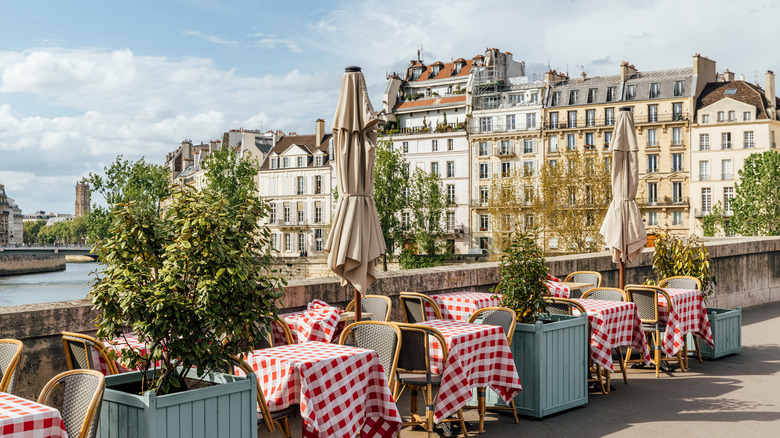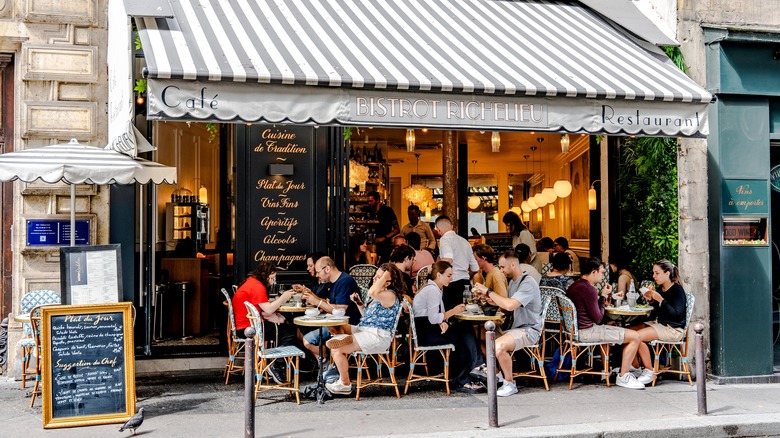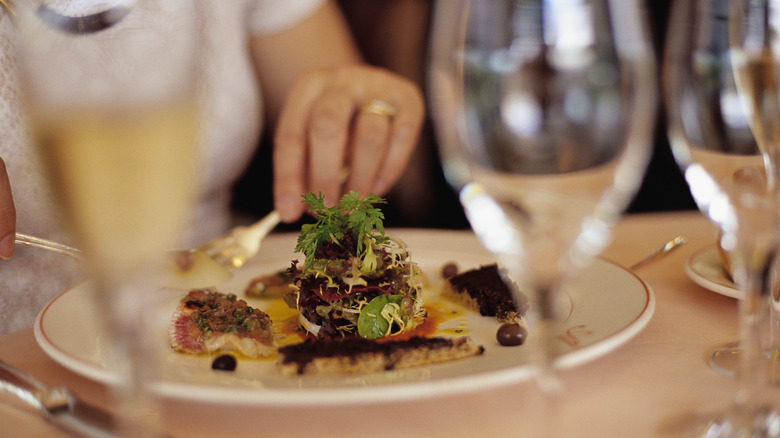Is The Phrase Bon Appétit Actually Considered Rude In French Restaurants?
Bon appétit is one of the best-known loanwords English has taken from French. It's said cheerfully in the United States at restaurants when food is delivered to the table, or in casual settings before starting to eat with friends at a home dinner party. While we often consider this French phrase to be ubiquitous with saying "enjoy your food", the literal translation of the word would be "good appetite". We probably would never say such strange phrasing in English; in 19th-century France, saying this phrase was considered rude because it referred to having a big appetite and the bodily function of digestion. So, do the modern-day French actually use the phrase bon appétit?
Despite lingering rumors that bon appétit is not used due to these Victorian-era reasons, the phrase is widely used in France today. There appears to be a very small minority who still consider the phrase as improper etiquette for the upper class, but this does not represent the majority of France. Whether you are eating with family or friends, or at a more formal business luncheon, you will almost certainly hear this phrase.
When is bon appetit used in France?
If you dine at a restaurant in France, it's common for waiters to say this phrase as they finish delivering your food to the table. The same is true at a fast food joint — when your bag or tray is set on the counter, you'll be told the same. At a dinner party, everyone may chime in to say it together when the food is ready, as a signal it is time to begin eating. It is also common to say bon appétit as you walk by other diners with food in a restaurant, or even to those enjoying a picnic in a park.
Bon appétit is the most used phrase, but similar phrases also exist in French. Bonne dégustation literally translates to "good tasting", and would be used to mostly by a waiter to refer to enjoying the taste or flavors of the food being served. If you hear the phrase régalez-vous, it means "to treat yourself". According to a Reddit thread on the r/france, another popular way to say bon appétit is simply shortening it to "bon app".
And what do you say when someone says bon appétit to you? If it's someone who is also eating, you can respond back with the same phrase. For waiters, cashiers, or passerby who are not eating, a simple merci will suffice.
Etiquette to remember while dining in France
Now that you don't have to worry about when to use bon appétit, there are a few other etiquette rules to remember when dining out and eating in France. There is a lot of common sense dining etiquette in France that you find throughout the world, like not chewing with your mouth open or eating too quickly. One specific rule at restaurants in France is to avoid cutting lettuce to make smaller pieces; instead, fold it over so it is easy to fit in your mouth.
If invited to a dinner at someone's home, avoid showing up empty-handed. While a random side dish may be a bit strange to bring as a dinner party gift, a bottle of wine is always welcome. If a full French baguette is passed to you at the dinner table, tear off a piece for yourself rather than slicing it. In restaurants baguettes and bread are normally served already sliced, and you should wait until the first course is served to eat any of it.
In the United States, we think of a cheese board as the perfect accouterment to a pre-dinner happy hour or with an aperitif. Ordering a cheese board before dinner or as an appetizer in France is not normal because it is considered a digestif here. A cheese board is an after-dinner food thought to aid digestion with the help of probiotics found in cheese.


